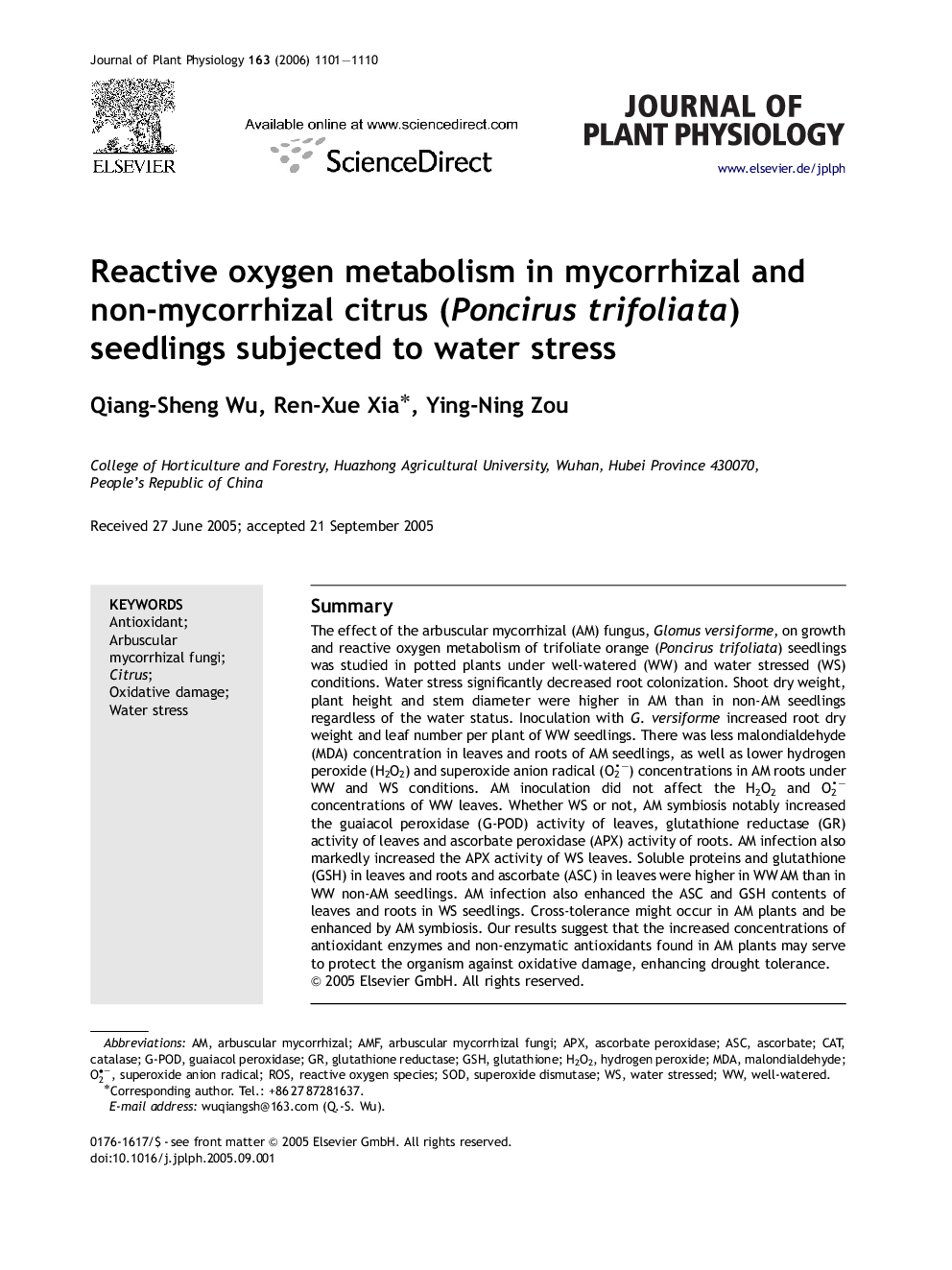| Article ID | Journal | Published Year | Pages | File Type |
|---|---|---|---|---|
| 2057709 | Journal of Plant Physiology | 2006 | 10 Pages |
SummaryThe effect of the arbuscular mycorrhizal (AM) fungus, Glomus versiforme, on growth and reactive oxygen metabolism of trifoliate orange (Poncirus trifoliata) seedlings was studied in potted plants under well-watered (WW) and water stressed (WS) conditions. Water stress significantly decreased root colonization. Shoot dry weight, plant height and stem diameter were higher in AM than in non-AM seedlings regardless of the water status. Inoculation with G. versiforme increased root dry weight and leaf number per plant of WW seedlings. There was less malondialdehyde (MDA) concentration in leaves and roots of AM seedlings, as well as lower hydrogen peroxide (H2O2) and superoxide anion radical (O2−) concentrations in AM roots under WW and WS conditions. AM inoculation did not affect the H2O2 and O2− concentrations of WW leaves. Whether WS or not, AM symbiosis notably increased the guaiacol peroxidase (G-POD) activity of leaves, glutathione reductase (GR) activity of leaves and ascorbate peroxidase (APX) activity of roots. AM infection also markedly increased the APX activity of WS leaves. Soluble proteins and glutathione (GSH) in leaves and roots and ascorbate (ASC) in leaves were higher in WW AM than in WW non-AM seedlings. AM infection also enhanced the ASC and GSH contents of leaves and roots in WS seedlings. Cross-tolerance might occur in AM plants and be enhanced by AM symbiosis. Our results suggest that the increased concentrations of antioxidant enzymes and non-enzymatic antioxidants found in AM plants may serve to protect the organism against oxidative damage, enhancing drought tolerance.
